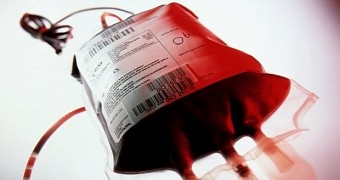A paper published in the Canadian Medical Association Journal this past Tuesday, April 7, details the case of a young boy who developed an allergy to fish and nuts after having been subjected to a blood transfusion.
The allergy the boy developed to these foods following the blood transfusion was severe enough to translate into anaphylactic shock when the child's unsuspecting parents let him eat salmon and chocolate peanut butter.
The transfusion altered the boy's immune response to the foods
In their report in the Canadian Medical Association Journal, the doctors who handled this case explain that, prior to the blood transfusion, the 8-year-old never showed signs of being allergic to any foods.
Having received donor blood, however, he developed anaphylactic shock about 10 minutes after having eaten salmon. Days later, his body had the same severe reaction to chocolate peanut butter.
On both occasions, doctors treated him with antihistamines and managed to save his life. His parents were advised to take fish and nuts out of his diet, and make sure to always have an epinephrine dose close at hand.
It is believed that the blood transfusion altered the 8-year-old's reaction to these two foods that he previously had no trouble consuming by introducing a protein dubbed immunoglobulin E in his body.
The presence of this protein in the body correlates with food allergies, explains specialist Julia Upton. Thus, immunoglobulin E is known to encourage immune cells to produce compounds that in turn cause allergic reactions.
Since his body did not naturally produce the compounds associated with severe immune responses to fish and nuts, the boy's allergy to these foods disappeared once the protein was flushed out of his system.
Thus, about six months following the blood transfusion, the 8-year-old's parents were given permission to reintroduce fish and nuts into his diet. The boy no longer responded negatively to the foods, Live Science reports.
As for the faulty blood he was given, the donor was tracked down and told that, since their body produced the allergies-causing immunoglobulin E protein, they could no longer make donations.
This peculiar case doesn't mean blood transfusions aren't safe
Medical experts explain that, although it sometimes happens that patients acquire various allergies following a blood transfusion, such occurrences are few and far between and should not be considered proof that interventions of this kind are not safe.
For instance, this 8-year-old had to be transfused blood as part of his treatment for medulloblastoma, which is a type of brain cancer. Acquired allergies aside, the fact of the matter is that the child really needed the blood.

 14 DAY TRIAL //
14 DAY TRIAL //